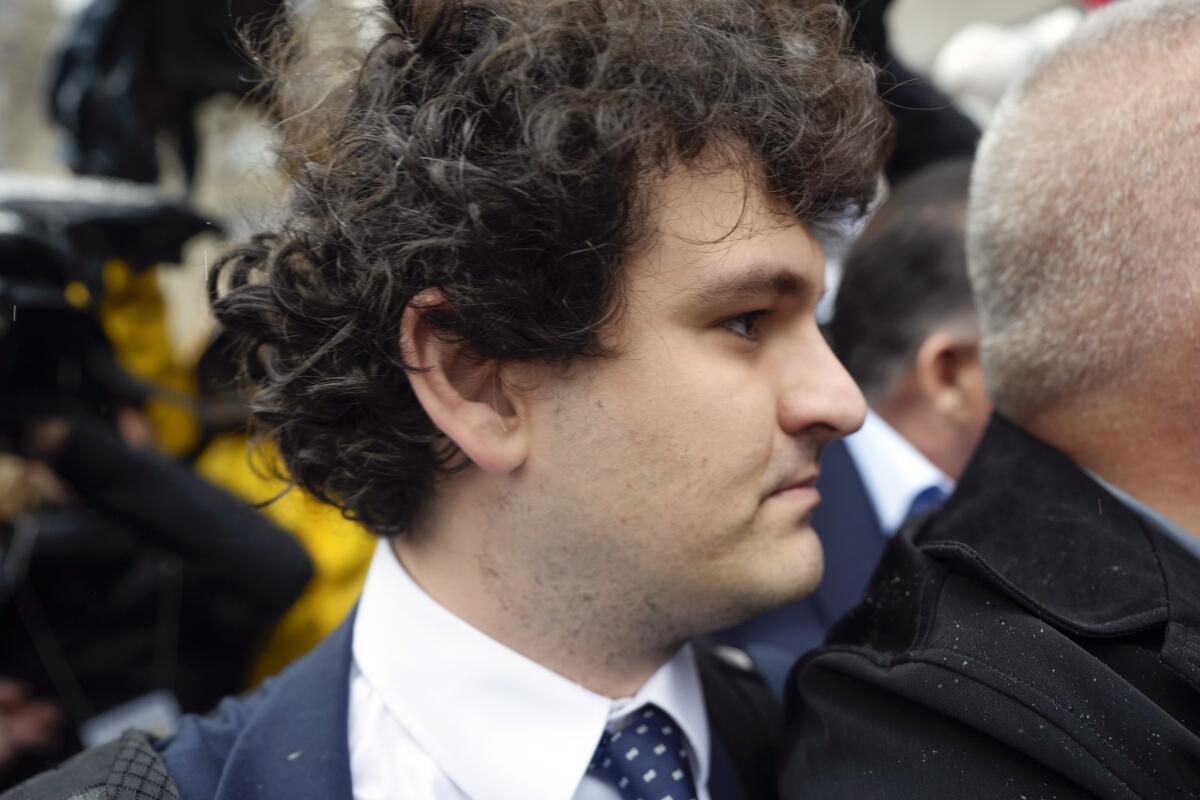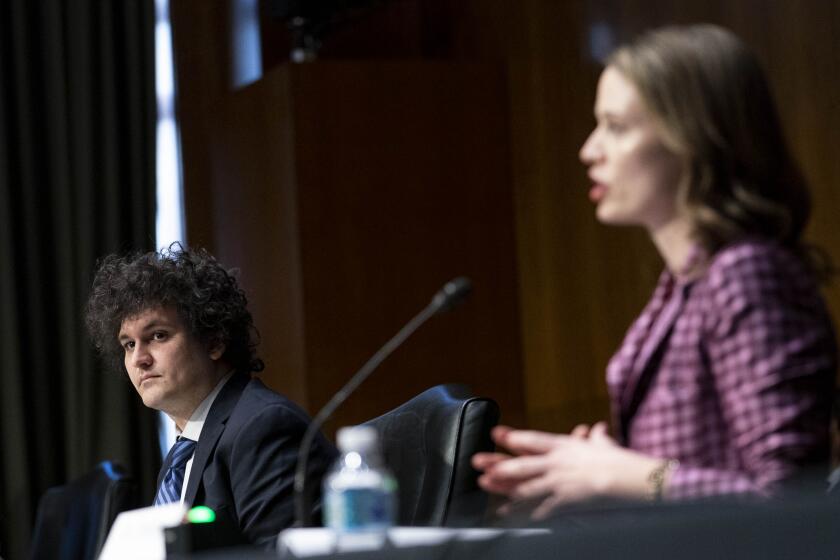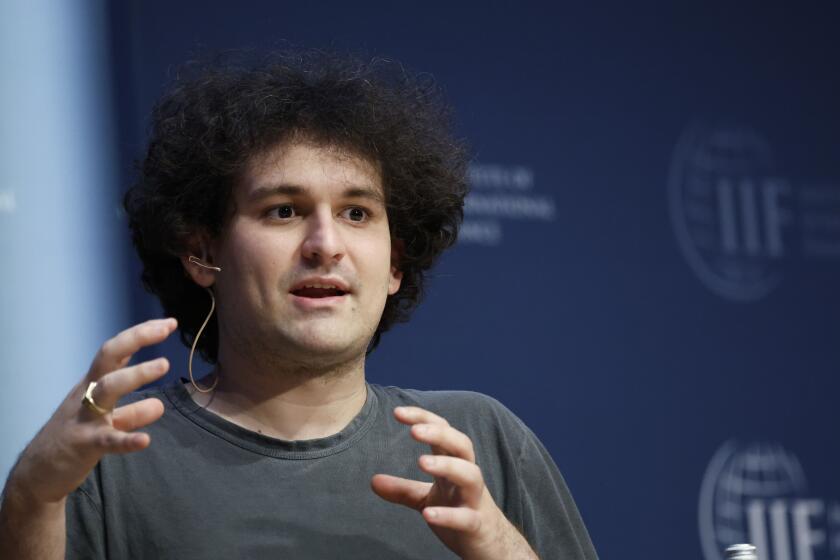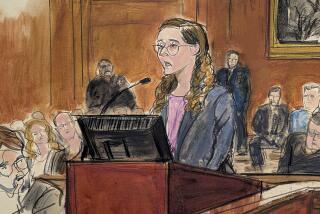Sam Bankman-Fried says he ‘didn’t stash billions,’ denies theft

Sam Bankman-Fried offered one of his most detailed descriptions yet of the FTX debacle as he prepares to fight fraud charges, blaming crashing markets and an attack from a rival for the eventual bankruptcy of his exchange.
“I didn’t steal funds, and I certainly didn’t stash billions away,” the former crypto magnate wrote in a blog post Thursday. “I’ve been, regrettably, slow to respond to public misperceptions and material misstatements.”
The latest version of events, drawing on Bankman-Fried’s memory of balance sheets at FTX and sister trading house Alameda Research, doesn’t go into accounting issues that he had earlier cited as among the reasons for the wipeout of his empire in November. He also doesn’t address allegations that he allowed Alameda to siphon customer funds from FTX for high-risk trading.
Once again, Bankman-Fried has ignored widespread advice about speaking publicly in the face of criminal charges. As FTX crumbled and filed for bankruptcy late last year, Bankman-Fried embarked on an apology tour, participating in several media interviews and using Twitter to explain his version of events. Legal experts have warned that his public statements would be heavily scrutinized by prosecutors and possibly used in the case against him.
Bankman-Fried, 30, is on bail and wearing an electronic monitoring bracelet while living at his parents’ home in California. He faces trial in October after pleading not guilty to fraud and campaign-finance law charges. Bankman-Fried has previously mentioned many of the points in his latest account.
Sam Bankman-Fried’s $16-billion fortune was always a myth. The mystery is why venture firms and the financial press thought it existed.
Prosecutors allege he’s behind one of the biggest scams in U.S. history after fraudulently raising $1.8 billion from investors under the guise of FTX having appropriate controls and risk management. He’s also accused of misusing customer funds at FTX to cover personal expenses, real-estate purchases and trading at the now-collapsed Alameda.
Bankman-Fried again complained that he’s lost access to much of his data following the bankruptcy of the sprawling FTX group. He said that he hadn’t run Alameda over the past few years.
By Bankman-Fried’s calculations, Alameda had $100 billion of net asset value in 2021. But he said it wasn’t hedged enough against the “risk of an extreme market crash” ahead of the deep rout that unfolded in digital assets in 2022. It ultimately tipped over when a rival’s “targeted attack” set off a run, eventually toppling FTX, he said.
‘Fateful tweet’
On Nov. 6, Changpeng “CZ” Zhao, the chief executive of Binance Holdings Ltd., the largest crypto exchange, tweeted about selling a large chunk of FTX’s native token FTT. That exacerbated worries about Bankman-Fried’s business and FTX quickly unraveled.
“Then came CZ’s fateful tweet, following an extremely effective months-long PR campaign against FTX – and the crash,” Bankman-Fried wrote in the blog.
Outside groups connected to the FTX co-founder spent about $2.4 million to support the congressional campaigns of Robert Garcia and Sydney Kamlager.
He added that “Alameda became illiquid, FTX International did as well, because Alameda had a margin position open on FTX; and the run on the bank turned that illiquidity into insolvency.”
Zhao has previously said that he didn’t realize the tweet “would cause so much change.”
Optimism
Restructuring expert John J. Ray III stepped in as CEO of FTX when the company slid into bankruptcy. He’s painted a picture of FTX as a mismanaged, largely out-of-control company bathed in conflicts and lacking basic accounting practices, calling it the worst failure of corporate controls he’d ever seen.
Ray has been optimistic about the likelihood that FTX’s U.S. customers could get their money back. Speaking to the chances of customers seeing their funds again, he told a panel of U.S. lawmakers in December that the U.S. exchange would suffer less.
At a bankruptcy hearing on Wednesday, FTX’s lawyers revealed more than $5 billion in cash and other assets had been recovered over the past two months.
FTX also plans to sell off nonstrategic investments that had a book value of $4.6 billion. The exact customer shortfall remains unclear as the bankruptcy team has to wade through a dearth of financial records.
Read More: FTX’s U.S. Customers May Have Better Luck Getting Their Money Back
‘Misleading’ statements
Alameda’s former CEO Caroline Ellison has pleaded guilty to fraud charges and is cooperating with prosecutors. In her plea hearing last month, Ellison said she and Bankman-Fried knowingly misled lenders about how much Alameda was borrowing from the crypto exchange. She said the two of them also crafted false financial statements.
In the blog post, Bankman-Fried reiterated claims that FTX’s U.S. operation was solvent and that, with time, he could have made customers of the international division “substantially whole” after getting interest from investors.
More to Read
Inside the business of entertainment
The Wide Shot brings you news, analysis and insights on everything from streaming wars to production — and what it all means for the future.
You may occasionally receive promotional content from the Los Angeles Times.












